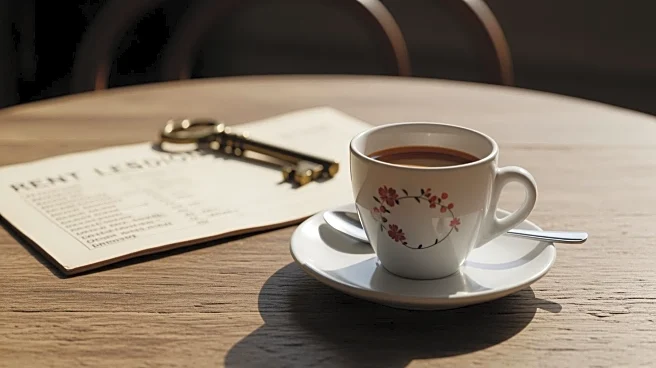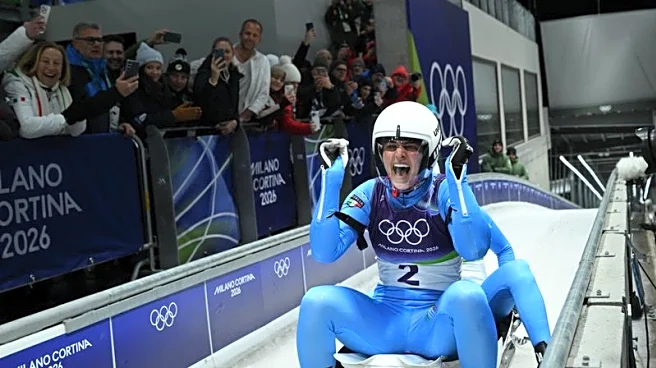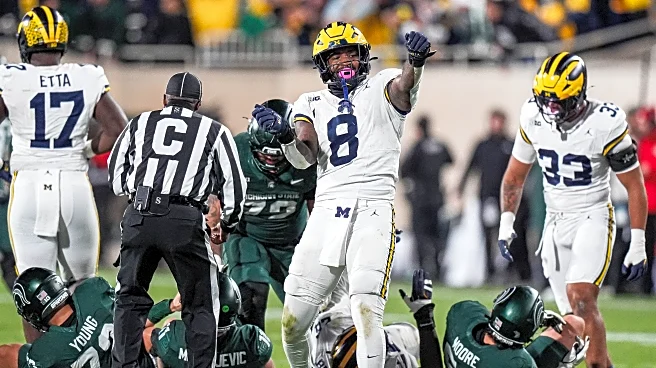What's Happening?
Antico Caffè Greco, Rome's oldest coffee house, has closed its doors following a prolonged legal battle over rent increases. The dispute began in 2017 when the Israelite Hospital of Rome, the landlord, raised the monthly rent from 17,000 euros to 120,000
euros, aligning with other high-end properties on Via dei Condotti. The proprietors, Carlo Pellegrini and Flavia Iozzi, contested the increase, leading to multiple appeals and retrials. In 2024, the hospital won the court battle, resulting in the eviction of the café's occupants. The café, known for its historical significance and famous clientele, has been stripped of its artwork and furnishings, which are now under the protection of Italy's Culture Ministry. The hospital plans to reopen the venue with a new tenant, ensuring the preservation of its historical integrity.
Why It's Important?
The closure of Antico Caffè Greco highlights the impact of rising commercial rents on small businesses in Rome, particularly in prestigious areas. This trend has been exacerbated by the COVID-19 pandemic, which shifted consumer behavior towards online shopping. The café's closure is a significant cultural loss, as it was a popular spot for both locals and tourists, offering a unique historical ambiance. The situation underscores the challenges faced by traditional businesses in maintaining operations amidst financial pressures and changing market dynamics. The hospital's decision to increase rent reflects broader economic strategies to enhance healthcare funding, but it also raises concerns about the sustainability of cultural landmarks in urban centers.
What's Next?
The Israelite Hospital plans to find a new tenant for Antico Caffè Greco, with assurances that the café's historical character will be preserved. The reopening is expected to attract new patrons, although the higher rent may influence pricing strategies. Meanwhile, the former proprietors, represented by lawyer Alessandro Ciciarelli, continue to contest the eviction, indicating potential further legal actions. The broader implications for Rome's commercial landscape include ongoing debates about balancing economic growth with cultural preservation. Stakeholders, including local businesses and cultural advocates, may push for policies that support the sustainability of historic venues.
Beyond the Headlines
The closure of Antico Caffè Greco raises questions about the preservation of cultural heritage in the face of economic pressures. The café's historical significance, with ties to figures like Buffalo Bill and Charles Dickens, represents a rich cultural tapestry that is at risk of being overshadowed by commercial interests. This situation reflects a broader trend in urban centers where historic sites are increasingly vulnerable to market forces. The ethical considerations of maintaining cultural landmarks amidst financial challenges may prompt discussions on heritage conservation policies and the role of government and private entities in safeguarding cultural assets.


















